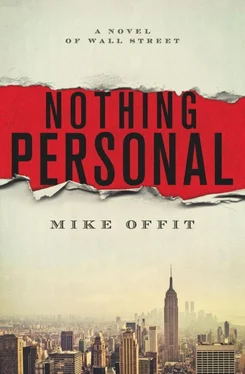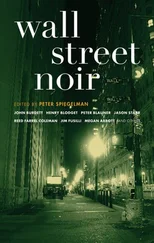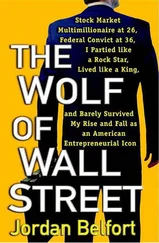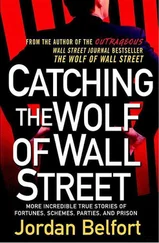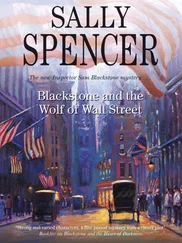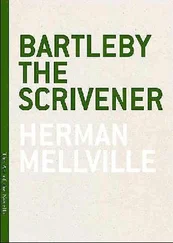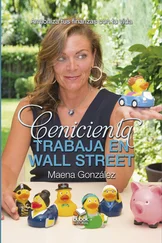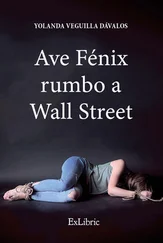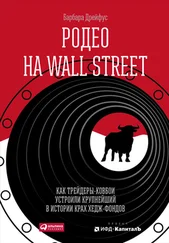They finished out the week and returned to New York and the hurly-burly world of commerce. Both Bill’s and Anson’s deaths were still unsolved, and Detective Wittlin didn’t even call Warren anymore. He had brought up the coincidence that Ken Hament had been in town the day that Anson got killed as well, but, again, nothing linked him to the scene, and he had been at his hotel in Midtown having a drink with another tennis pro at about the time of Anson’s murder.
Warren tried not to think too much about the money, but he spent weeks researching every deal that Anson Combes had done over the past seven years. Surprisingly, many of the deal files had been moved to an archive warehouse. Warren had filled out the retrieval requests and noted on the forms, in case anyone was curious, that he was working on devising a new structure for similar deals. He also ordered up unrelated deals by other people to cover his tracks.
There was only one noticeable trend in Anson’s files. Almost every sizable deal Anson did was with Warner or Golden State, and almost every one of them involved a massive profit participation by the broker Scholdice. Welson would work for a point or two—great by normal standards. But Warren had added up over $375 million in the first two years alone paid out to Scholdice–about ten times what Weldon had netted. The total could eventually have been close to a billion dollars. The pattern had become pretty clear: Scholdice was working with the men at the banks and Anson to turn the banks’ losses into huge payoffs for all the men involved. The money must have gone from Scholdice maybe first to the Caymans and then to Liechtenstein.
Warren went to Weldon’s library of financial statements and, a check of the two banks’ reports revealed extremely large loan-loss reserves stretching back over at least five years. The losses were covered by profits from other investments—junk bonds, real estate, and so on. The banks’ losses were taken on the loans Anson bought, repackaged, and sold, at massive profits. Weldon earned a nice fee, but the bulk of the money went to Scholdice, who was clearly sending a share to Anson’s account, keeping his cut, and, no doubt, sending a big chunk to the men at the banks as well. Warren was willing to bet that some of those European banks had accounts set up by Scholdice, with Karlheinz Beker and Pete Largeman participating in the spoils. They’d devised a brilliant scheme to sell off blocks of the banks’ perfectly good assets, replace them with shaky, but not high-yielding ones, and skim the profits off the top. The plan also allowed the banks to avoid paying taxes on their profits on these questionable assets. Anson was a hell of an investment banker, after all. The financial press hailed these men as geniuses—they’d saved their institutions from the ruin of poor lending practices with brilliant investments. Their shareholders should be thrilled.
Ultimately, if the junk bonds and the leverage failed, the shareholders would be wiped out, and Uncle Sam would foot the bill. There would be no obvious theft because all they would see were the collapsed junk bonds and real estate; the “bad” mortgages had been sold off long ago. The losses on the loans had been well reserved for, and $200 million or even $1 billion was a drop in the bucket over time. It looked to Warren as if this had been going on for at least four or five years. By the time anyone caught on, it’d be impossible to accurately reconstruct the whole scheme. The press was right. These guys were brilliant.
Then why was Anson dead? Had he stiffed them? His share did seem pretty large. Did Dougherty figure out the scam, and is that why he was dead? Maybe that’s why Anson was so interested in Bill. Or maybe Anson was worried about Warren’s finding out. It all made his head spin. One thing for sure, Warren didn’t want anybody connecting him with any of this. He returned the files and stopped snooping. The thought of all that money, sitting in that quaint, little bank, felt like having Aladdin’s lamp in your bag, but not knowing if the genie was good or evil. He wondered what would happen when, or if, Scholdice or Beker or whoever went looking for the cash and discovered it was gone. But then, why would they if they’d already gotten their share? All that money must have been Anson’s. There’s no way they’d all trust each other with that kind of untraceable money.
Sam decided to stick around New York for a while longer. She never mentioned the money, although Warren kept her informed about his research, and under the guise of returning to her own investigation, she reaffirmed with her attorney that no one could, without proof of a serious financial crime under local laws, compel the banks in Liechtenstein to divulge where the money had been transferred to or by whom. She had tried for years to track the real Anschutz through Liechtenstein, and even with clear evidence of his crimes in the United States, the banks and their government ignored the FBI and Sam’s lawyer, not even replying to their inquiries.
The happy couple were falling into a pleasant rhythm—Warren would take off for work in the mornings, and Sam would run any errands they needed. She’d spend an hour or so on the phone to Carlos at the lot, where business was good. She had turned it into a real moneymaker—Carlos was putting over $8,000 a month into her account and still holding a surplus. The biggest volume of business came from the film studios. They would use her cars both as props and as executive transportation. Carlos had solved one thorny problem when a studio production head was arrested with an ounce of cocaine and two prostitutes in one of Sam’s Maserati sedans. The police wanted to impound or even seize the car, and Carlos had gotten his cousin, a detective, to intervene. Two days’ use of an antique Corvette had convinced the officer to lay off. Carlos was a hard worker, and trustworthy, and she called the bookkeeper and told her to give him a 40 percent raise and a $50,000 bonus. He was speechless—this was double the amount he’d ever made in a year.
“Listen, I may not make it back to L.A. for a while,” Sam had changed the subject while Carlos stammered his thanks into the phone. “Could you send me out the rest of my shoes?”
“I think maybe this is serious, no?” He had been on the lot for six years and had helped her learn about the business when she’d taken it over. He never minded doing things for her. “I am a lucky Mexican, Samantha. I have a good job and a good boss, a green card, and my family with me. I drive nice cars, and you know how Mexicans are about cars. For you, I will do anything.”
“I don’t know, Carlos. Maybe it’s for real. I hope so.” She was telling the truth.
“I hope he is a good man. Not like the last one, eh? He better treat you right.” Carlos had hated Artie and was offended at the abusive way he drove the cars he was constantly borrowing. He had ruined the clutch on a Lotus Turbo Esprit and worn the rubber off the tires of at least a half dozen others. Carlos had said to Sam that a man who treated automobiles that way would not treat women or clients any better. She hadn’t listened.
“I think he is, Carlos. He has a good heart. His job makes him angry sometimes, but he is sweet to me.” As she was talking, she realized, for the first time, how much she was in love with Warren. It wasn’t just that he was funny and they had a good time, and that he was successful and generous. She loved the way he was basically naïve and hated the way his work was making him jaded. He never made her feel as if he were a threat to her in any way, and he genuinely paid attention to her happiness. “God, I hope he is,” she had added, and Carlos, three thousand miles away, had smiled into the receiver at the fullness of her voice.
Читать дальше
